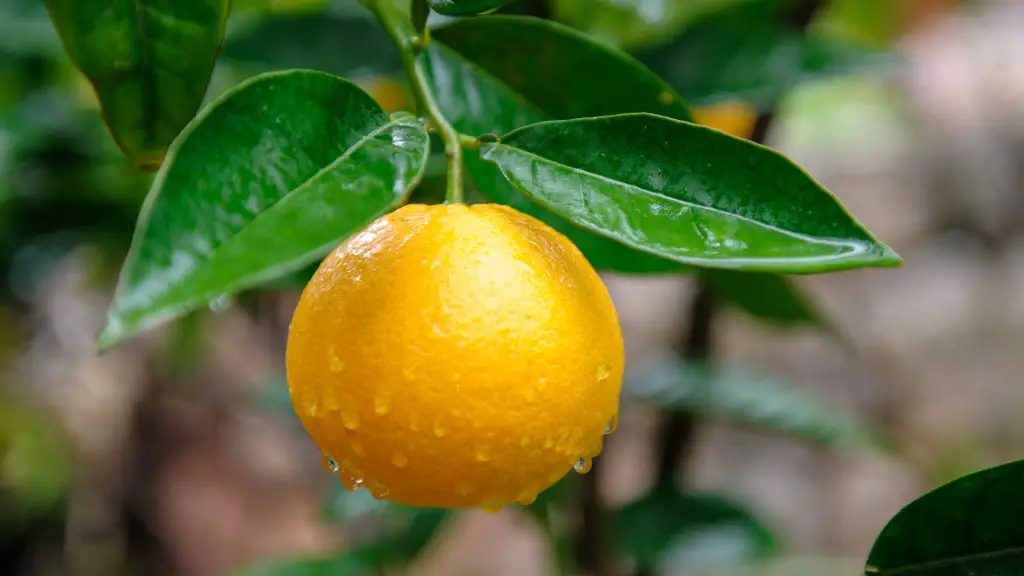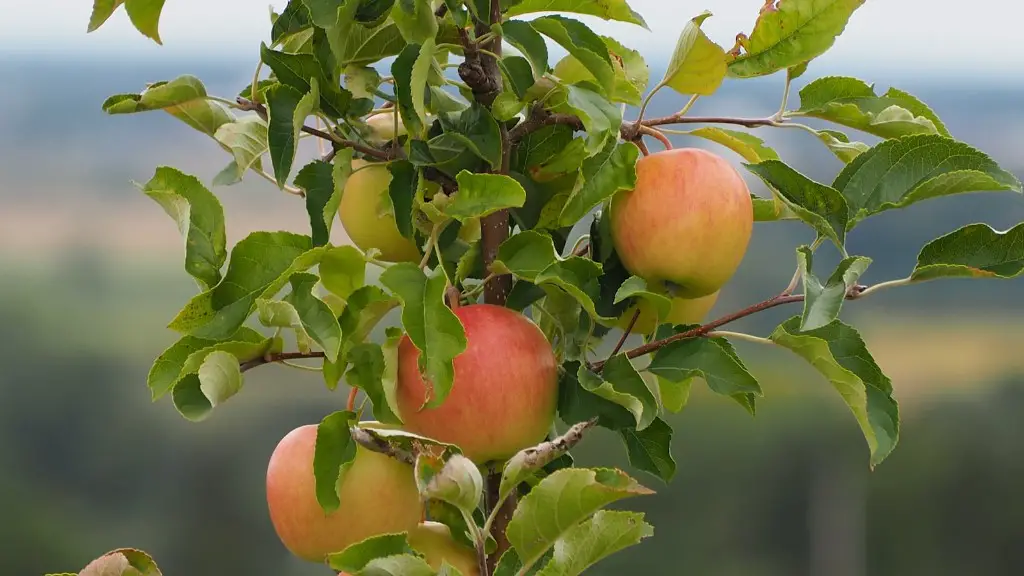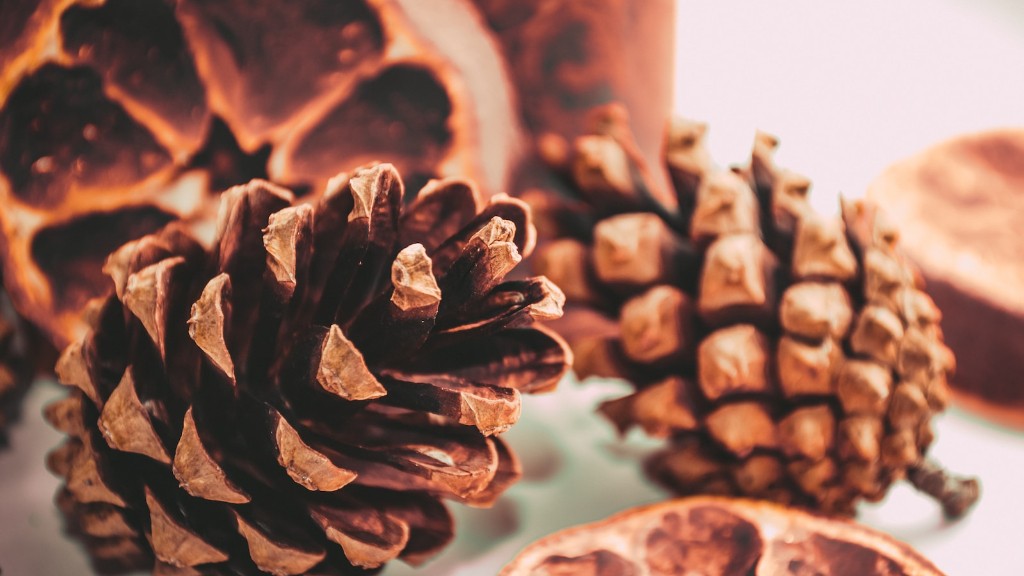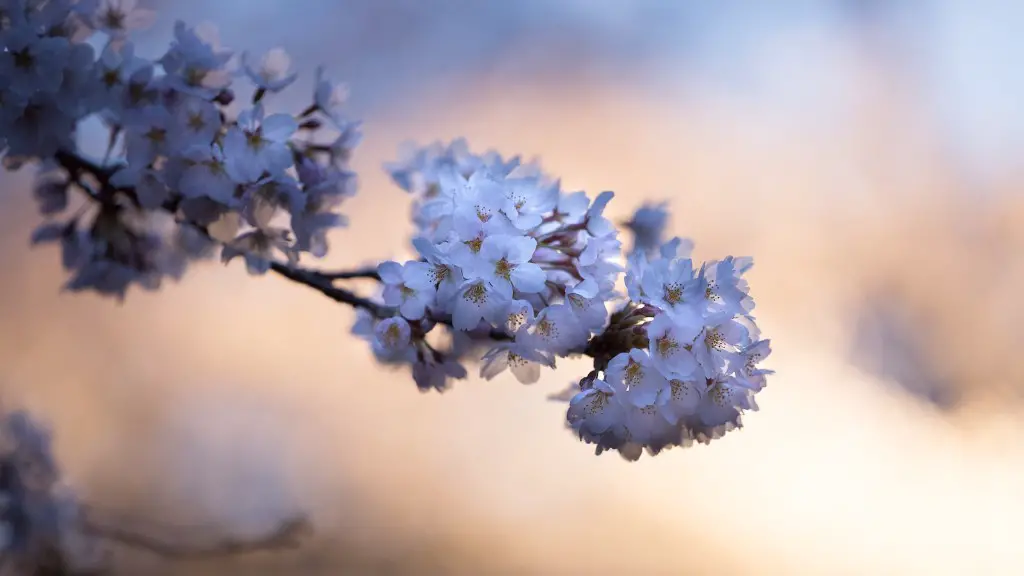Meyer lemons are a type of lemon that originate in China and are exceptionally sweet and juicy. They are an increasingly popular ingredient in cooking and baking and can be used to make a number of different recipes. Meyer lemons are known for their thick and fragrant skins and can be planted both in pots and in the ground to create an aromatic, citrusy addition to a garden or landscape. So, can you plant a meyer lemon tree in the ground?
The answer is, yes, you can plant a meyer lemon tree in the ground. It’s important to prepare the soil properly though to ensure a healthy tree in the future. As with any other citrus tree, meyer lemons prefer a well draining soil with a pH level around 6.5. The soil should also be fertilized before planting to ensure the tree will have all the nutrients it needs to be successful.
Meyer lemons grow best in a location with lots of sun, preferably from 6-8 hours each day. It’s a good idea to plant them in a location that won’t be subject to the winds, since this can prevent the tree from properly taking root and growing. When planting in the ground, dig a hole twice as wide as the pot or root ball that the tree comes in. This gives the roots more room to spread out.
Remember, meyer lemons need a fairly consistent amount of water. Before planting, it’s important to determine how much water your particular plant will need. Too much water can lead to root rot, while not enough water can result in stunted growth and fewer fruits. Meyer lemons need an even moisture level in the soil so try to maintain this equilibrium by watering in the morning and watering deeply.
Overall, meyer lemons are an excellent addition to any garden, even if you are just planting them in the ground. Just remember to prepare the soil properly first, give the tree ample sunlight, and water deeply and evenly. With the proper level of care, you can enjoy fresh meyer lemons for many years to come.
Mulching for Optimal Soil Health
After planting your meyer lemon tree in the ground, it’s important to pay attention to the health of your soil. One way to ensure your tree is receiving all the nutrients it needs is to mulch around it. Start by spreading 2 to 3 inches of mulch around the root zone of the tree – this will help keep weeds down, as well as regulate soil temperature and provide needed nutrients to the tree. Regular addition of mulch is vital to protect the root zone and to provide vital nutrients.
Compost is a great way to go when it comes to mulching for Meyer lemons in the ground. It’s especially important to use compost if your tree will be up against a concrete foundation, as the soil can become depleted quickly in this scenario. The compost will act as a buffer between the concrete and the tree, and also provide essential nutrients to the tree’s roots. Keep an eye on the mulch and make sure it doesn’t get too dry, as this can affect water retention and hinder the tree’s growth.
Adding a few inches of mulch each year is highly beneficial to not just your Meyer lemon tree, but all other plants in your garden as well, as the beneficial microorganisms in the mulch will help break down any organic matter and help provide maximum benefit to the plants. Also, pay attention to any leaves that fall on the ground and give them a good rake up, as they can contain disease-causing organisms that can affect the health of your tree.
Tending to the Tree
Tending to your meyer lemon tree is fairly straightforward, though of course there are some important basics you should follow to ensure optimal growth. Fertilize at least twice yearly, in early spring and late summer. It’s also important to prune your tree on a regular basis; citrus trees respond well to regular pruning, but keep in mind the more you prune, the less fruit the tree will produce. A sharp pair of bypass pruners does the job at hand nicely as long as you are careful about not leaving any jagged edges.
It’s important to keep the tree free from any pests and diseases, as these can affect the health of your tree. Monitor regularly for signs of insects or disease, and if you do notice any, treat immediately with an organic solution or spraying your meyer lemon with the organic fungicide Neem oil to kill off any pests or diseases right away. This can help keep your tree healthy and help it to produce lots of juicy Meyer lemons come harvest time.
It’s also important to check the irrigation system that was installed when you planted your meyer lemon tree. Check the water flow, pipes, and valves and make any necessary repairs or adjustments. Make sure you are using the right amount of water and that it is being evenly dispersed throughout the tree’s roots. Too much or too little water can have a negative effect on tree health.
Harvesting and Care of Meyer Lemons in the Ground
Your meyer lemon tree in the ground should take about three years to produce a full crop of lemons. You’ll know the tree is ripe when the skin of the lemons turns yellow. At this point, they can be harvested. Use a pair of pruners to cut off each lemon, making sure you leave at least one-third of the stem attached. This prevents any damage to the remaining fruits.
Meyer lemons have a very short harvesting season, usually eight weeks or less. To prolong the shelf life of your lemons, you can store them in the fridge for up to five weeks. If you have a larger crop, you may want to try freezing the lemons. With the proper techniques, you can enjoy the scent and flavor of meyer lemons for months to come.
Finally, keep in mind that meyer lemon trees need protection from strong winds and intense sun. If your tree is located in a windy or sunny spot, consider providing shade or wind protection such as shade cloth, burlap fabric, or a trellising system. This will help your meyer lemon tree in the ground to remain healthy and produce an abundant crop of juicy lemons year after year.
Fertilizing Meyer Lemon Trees in the Ground
Fertilizer is important to the growth of Meyer lemons in the ground. Choose a balanced blend and make sure to use the right amount. Too much or too little fertilizer can weaken your tree or even kill it. A good option for Meyer lemons is an organic fertilizer like fish emulsion or compost tea. The best time of year to apply fertilizer is in the spring and late summer.
It’s also important to check the soil pH to ensure that it is within the optimal range for Meyer lemons. The best way to do this is to use a soil test kit from your local garden center. If the soil isn’t in the ideal range, you can add lime to increase the pH or sulfur to decrease it. It’s best to do this several weeks before fertilizing, to give the soil time to adjust.
Finally, keep in mind that too much fertilizer can be damaging to Meyer lemons, so use it sparingly. Follow the instructions that come with your fertilizer and make sure not to over fertilize. If you over fertilize or apply too much fertilizer, the tree may become weak and unable to produce healthy fruits.
Insects and Diseases
Meyer lemons in the ground can be susceptible to a variety of insects and diseases, so it’s important to stay on top of any potential problems. Be sure to inspect your tree regularly for signs of pests or diseases. If you do notice any, treat immediately with an appropriate insecticide or fungicide. If a serious infestation occurs, you may need to consult with a professional to get it under control.
It’s also important to keep an eye out for any disease-causing organisms that may be present in the soil or on the roots of the tree. Common diseases include root rot and citrus canker. These can wreak havoc on your tree and make it difficult for your meyer lemon tree in the ground to produce healthy fruits. If you do spot any of these diseases, be sure to treat them immediately with an appropriate fungicide.
Finally, it’s important to note that meyer lemons in the ground can be attacked by a variety of insects, such as aphids and mealybugs. These can cause damage to the leaves and fruit of the tree and can stunt its growth. If you do see any pests on your tree, treat it right away with an appropriate insecticide.




